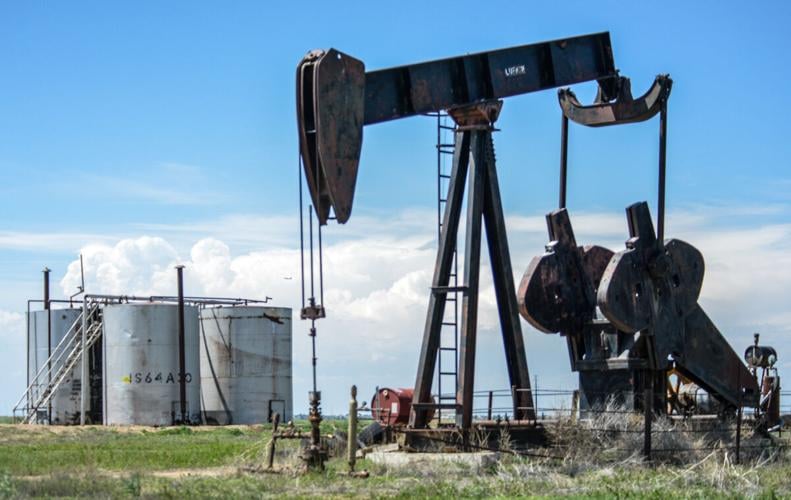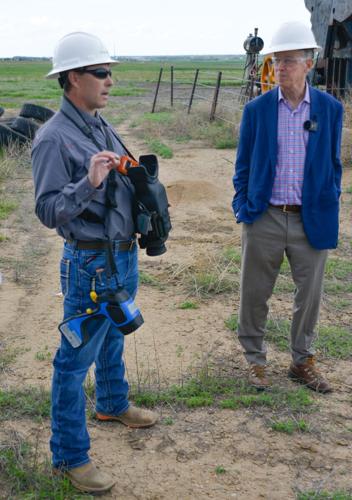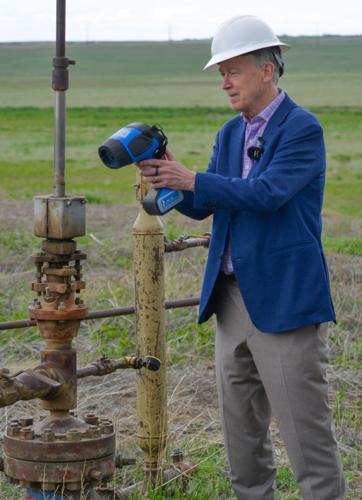Colorado Orphan Wells Mitigation Enterprise Board adds new $115 annual fee
Colorado levied another fee on oil and gas operators in Colorado to pay for closing and cleaning up another category of wells called marginal wells, defined in the statute as “an oil and gas well that presents a high risk of becoming orphaned.”
The new $115-per-year fee, which is expected to raise about $5 million per year, will go into the Orphan Wells Mitigation Enterprise (OMWE) fund. The Board of the Orphaned Well Mitigation Enterprise controls that money.
The fee is in addition to the existing fee of $125 to $250 per year imposed for orphan well remediation.
OMWE is a state-owned enterprise under the state Energy and Carbon Management Commission. When collecting revenues and setting fees, it is not subject to the fiscal constraints of the Taxpayer Bill of Rights.
“The fee applies to every Colorado well in a company’s portfolio and does not create a requirement for operators to stop producing marginal wells but instead creates a voluntary pathway for the transfer of these wells to the state,” said Gabby Schaefer, COGA director of marketing and communications.
Senate Bill 24-229 expanded the OWME’s authority to include the plugging of marginal wells.
Beginning in 2025, operators can volunteer marginal wells to be plugged by the OWME.
“The fees collected — $115 per well annually — go into the Orphan Wells Mitigation Enterprise Fund,” said Kristin Kemp, public information officer for the Energy and Carbon Management Commission. “The fund was initially named for orphan wells. Nonetheless, our accounting team will manage the fund to ensure it is used to fund the plugging of both orphan and marginal wells.”
Kemp told The Denver Gazette that an operator does the plugging and remediation work required to close a marginal well and cover the upfront costs, according to an application that must be filed first with OWME. Once the work is completed and inspected by ECMC personnel, the commission will reimburse the operator using money from the Orphan Well Enterprise Fund.
Kemp said in an email that they don’t have criteria set that would define a “marginal” oil well.
“Regarding the Enterprise Fund program, we don’t yet have answers to those important factors,” Kemp said. “Our staff will develop that criteria this spring for the April launch.”
“Colorado is the nation’s leader in regulating oil and gas production in a protective manner,” said OWME Board Chair Jeff Robbins. “Orphan wells pose a risk of adverse impacts on public health, safety, welfare, the environment and wildlife in our state. The new Marginal Well Mitigation Fee adds to unprecedented funding — a total of $29 million next fiscal year — to plug not only orphan wells but also marginal wells.”
Kemp said ECMC staff are working out the logistical details for this new program and will present a work plan to the Board for their consideration in April.
According to Carbon Tracker, an “independent financial think tank that carries out in-depth analysis on the impact of the energy transition,” Colorado has nearly 48,000 unplugged oil and gas wells that will cost at least $6.8 billion to close and clean up.
According to its report, “Rocky Mountain Highs and Lows: Decommissioning Colorado’s Two Oil Industries” “Colorado’s bonding rules and federal programs will only bring in $654 million over the next five years, less than 10 percent of decommissioning costs.”
“There is no standard or average cost for plugging a marginal well because the variables are so vast. The variables range from the quantity of wells at the site or in the application, the depth and condition of the well(s) to the presence and quantity of flowlines and production equipment to other environmental remediation measures with site closure,” Kemp said. “Our team forecasts that the fees will generate $5 million annually to fund this program.”
“The Annual Mitigation Fee paid by operators to fund orphaned well plugging supplements federal funding,” Kemp added. “Through 2030, Colorado expects to apply for a total of $129 million from various grants available from the Federal Infrastructure Investment and Jobs Act to plug orphan wells.”
State law already requires oil and gas operators to ensure they have enough money in bonds to cover the costs of well closure and remediation.
State enterprises cannot get more than 10% of their income from state funds and cannot be predicted to generate more than $100 million in the first five years without voter approval.
“The fund balance for the Orphan Wells Mitigation Enterprise Fund at the end of FY24 was $27.8 million,” said Kemp. “The $100M limit is within the first five years of the start of the enterprise. It is not an ongoing cap in perpetuity.”






